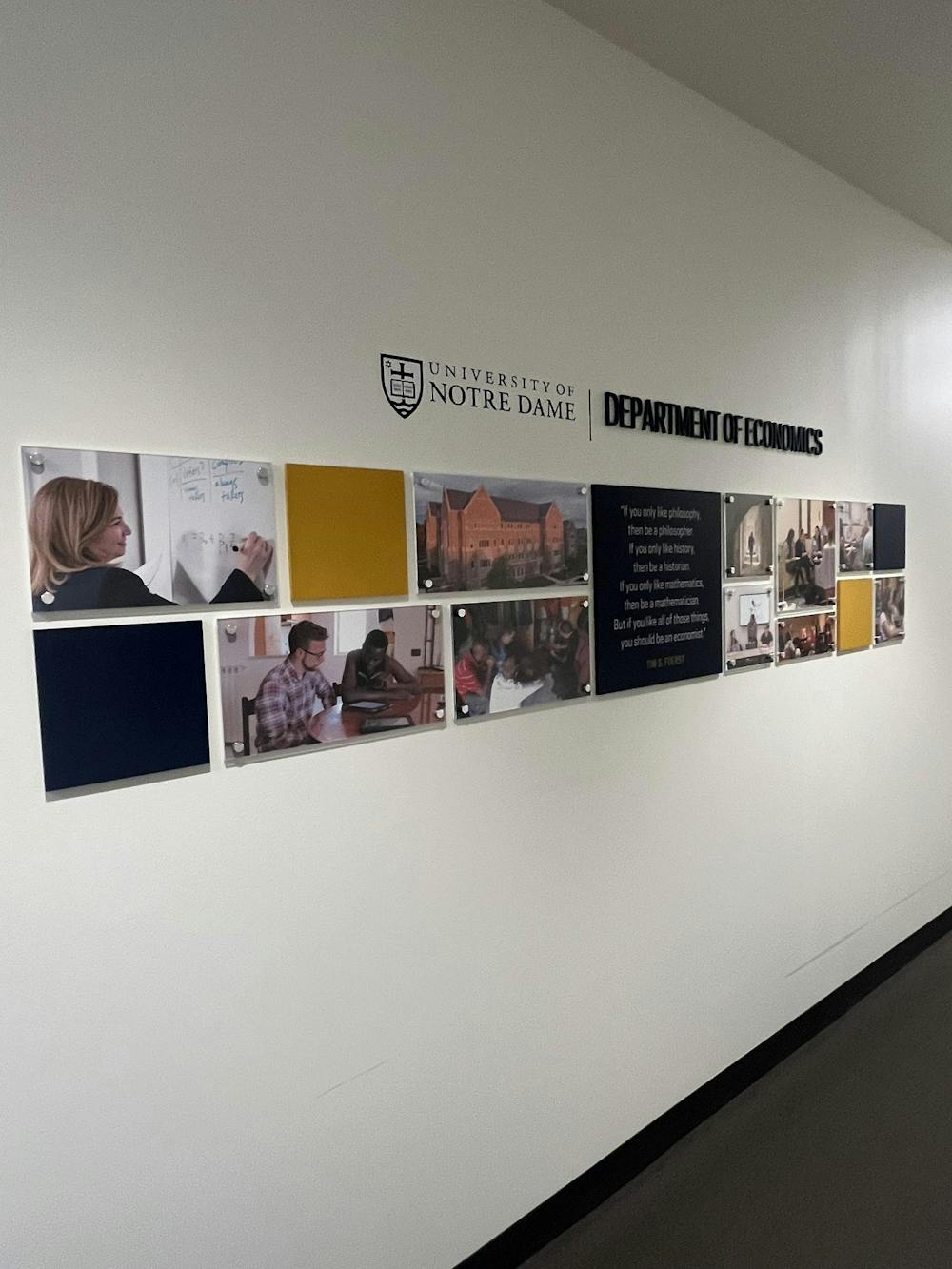In a historic move, an alumni couple donated $100 million toward the University’s new Notre Dame Poverty Initiative, the largest single donation toward an academic priority in the University’s history. The University announced the gift in a press release last Wednesday.
Led by economist and professor Jim Sullivan, the poverty initiative aims to position Notre Dame as a global leader in poverty research, empower students across all three campuses for impactful service and translate research into real-world solutions to fight poverty.
The gift comes from two anonymous benefactors who both attended the University. Sullivan shared that their generosity is a clear indication of a “deep love for Notre Dame, and what Notre Dame can do to be a force for good.”
Sullivan said that benefactors choose Notre Dame over institutions like Harvard, MIT and Stanford because Notre Dame has strong relationships with nonprofit service providers across the U.S. and the globe.
“You know, I found that not to be an unusual trait, benefactors that come back to the University,” he said. “It’s a core belief that the work that Notre Dame is doing has a tremendous positive impact.”
The new initiative is not the first working toward researching and developing solutions to global poverty. The Wilson Sheehan Lab for Economic Opportunities (LEO) in the College of Arts and Letters and the Pulte Institute for Global Development at the Keough School of Global Affairs have completed countless projects and worked with partners across the country in the last 12 years. These organizations have successfully partnered with entities like Goodwill Industries, Catholic Charities USA, Catholic Relief Services and the U.S. Agency for International Development (USAID).
The poverty initiative aims to enhance the efforts of LEO and Pulte and stoke collaboration on future projects. The initiative will also dedicate resources to the Center for Social Concerns and the Building Inclusive Growth Lab.
Sullivan said LEO plans to expand within the economics department and create a concentration for “building causal evidence.” Students in the concentration will have the opportunity to take courses that build skill sets geared toward running their own experiments and conducting research. This program would start in economics, but Sullivan said the institute would soon expand this curriculum “more broadly across disciplines.”
Currently, LEO is home to 11 undergraduates who work full-time as research students in the summer, but Sullivan said the hope “is to significantly expand” the program. He mentioned similar hopes for the Pulte Institute.
Sullivan said his long-term goal is for Notre Dame to become the place that is “known for doing great work for poverty.”
Beyond research, Sullivan mentioned the “impact of training the next generation of experts, so students are training students, who will go on to be researchers … So when they’re the leaders of nonprofit organizations, they can bet that will help make them better leaders … it’s our students who are our greatest asset in terms of having future leaders.”










